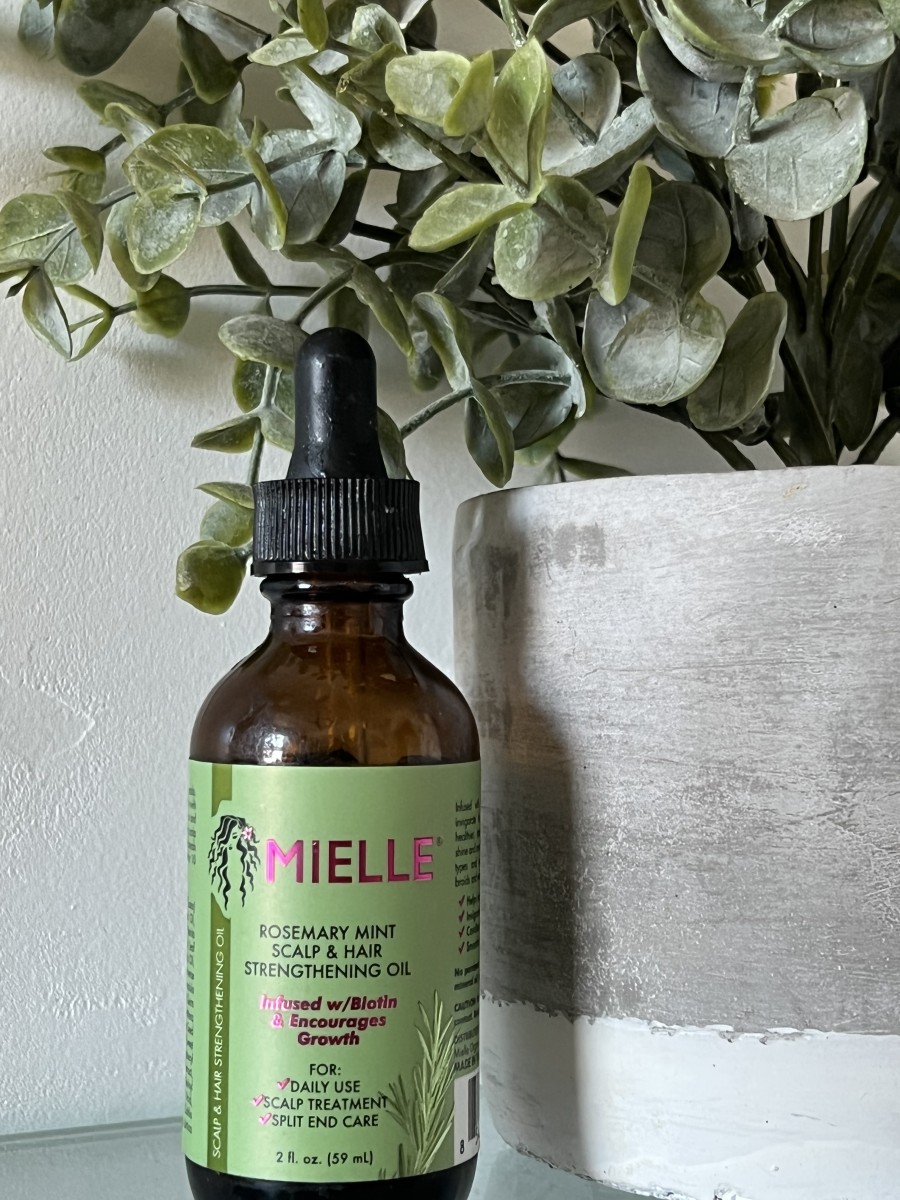Mielle Organics promises Black women the company will stick to its roots
Some loyal Black women customers worry the Indiana-based natural hair care brand may lose its magic after being acquired by multinational Procter & Gamble.


Mielle Organics promises Black women the company will stick to its roots
Some loyal Black women customers worry the Indiana-based natural hair care brand may lose its magic after being acquired by multinational Procter & Gamble.
By Samantha CallenderMielle Organics is having a moment.
First a viral TikTok video about its Rosemary Mint Oil led the product to fly off shelves. Soon Black women found themselves unable to purchase a product that had been a staple in their hair care arsenal since 2018. A great debate surrounding gatekeeping and ownership of the oil (and other products formulated for natural hair) came into question on social media. In the midst of that debate, Procter & Gamble acquired Mielle.
Chicago native Monique Rodriguez created Mielle in 2014, and she has maintained that she and her husband Melvin will continue to helm the reins of the brand. In an exclusive interview with ESSENCE magazine, Rodriguez said the acquisition “allows us to advance initiatives in the Black and Brown community” and the ability to scale their pillars of “education, entrepreneurship and mentorship.” But some fans are reserving judgment. Loyal Black women customers worry their beloved brand will lose its magic. They’ve seen it happen before.
“I get where the anger comes from but this is great news for Mielle,” said StyleCaster beauty reporter Mika Robinson. “As consumers, we immediately react with emotion not fully understanding how this kind of move can positively impact not only the business but also the people behind the scenes that have put every ounce of blood sweat and tears to keep it going.”
Fans of Mielle remember when Shea Moisture, another brand that was Black-owned since 1991 and catered to natural hair, was acquired in 2017 by UK-based consumer goods company Unilever. Longtime consumers of Shea Moisture felt the formula of many of the brand’s products shifted after the acquisition in an effort to cater to the hair of a wider audience.
In late December, TikToker Alix Earle, a white social media influencer, recommended the product to her nearly 3 million followers as one of her “best purchases” of 2022. The video took off on social media, with many racing to buy the product that Earle claimed helped her hair grow thick and luxuriously. Earle’s video created a frenzy that saw stores selling out of the product, leaving longtime original users unable to purchase the product that addresses their particular hair needs.
Addressing fans on Instagram, Rodriguez has maintained that the formula of the Rosemary Oil nor any other Mielle product would change and she would “always inform you in full transparency if any adjustments are made to the products you love and trust.”
This scarcity is what drove the conversation on social media, with many longtime fans of the product feeling as though this was another product to be “Columbused” — discovered by the mainstream when in fact it’s long been a culture staple.
“People may ask, ‘Well what’s the big deal?’ The deal is that there’s this sudden, massive interest in a product and it now becomes unavailable to the people who need it most,” said Jamisha Daniels, a culture contributor at VIBE magazine. “This product was made with natural hair textures and needs in mind and now it’s being mass consumed by people who have plenty of other options on the market for their hair texture.”
A McKinsey study revealed that in 2021 alone, Black Americans spent nearly $6.6 billion on beauty products, making up around 11% of the U.S beauty market. Black brands make up only about 2.5% of the market. A brand specializing in meeting the specific wants and needs of Black consumers is sure to make a significant portion of the $6.6 billion spent.
That small market representation explains the concern around P&G buying Mielle. It’s a rare occurrence to find products that are distinctly formulated to serve textured hair.
It’s equally as rare to have brands like Mielle create community centering Black women online and in real life. Beyond the hair care, fans of Mielle feel a personal connection to Rodriguez, who often shares life behind the scenes with her husband and their home and their Travel Channel-worthy adventures across the world for business and for pleasure.
Through all the controversy and conversation, Rodriguez has maintained that Mielle will remain committed to the community. She’s promised neither she nor the brand will abandon the community they’ve built on social media, the community of folks who rely solely on Mielle to meet their niche hair care needs or the community of aspiring entrepreneurs who have looked to her as a resource and mentor.
As Rodriguez and her brand evolve, longtime supporters hope she makes good on her promise to continue to elevate while also reaching back.
Samantha Callender is a digital reporting fellow for WBEZ. Follow her across socials @OnYourCallender.
